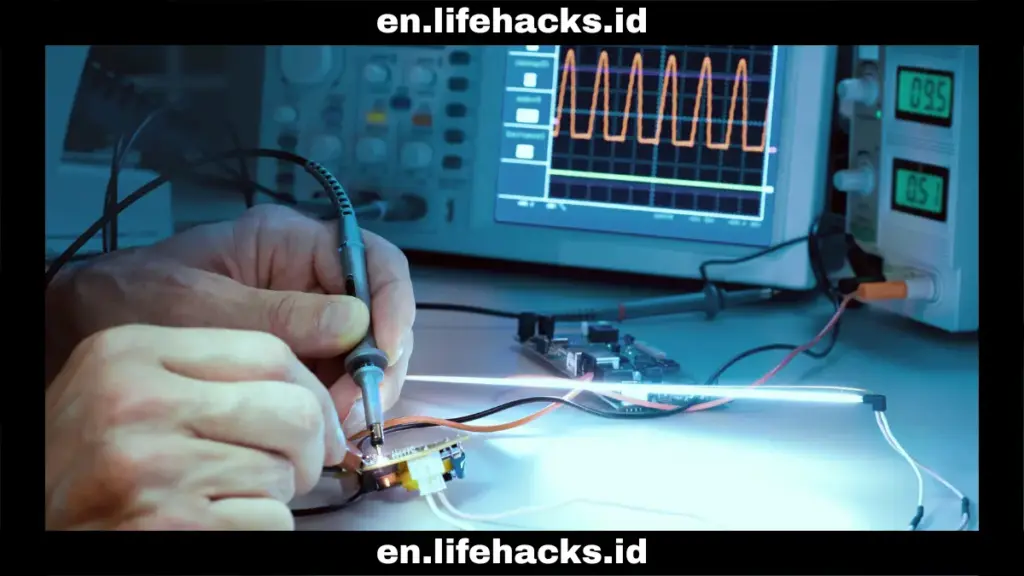Telecommunications devices such as mobile phones, routers, Internet of Things (IoT) modules, and modern short-range devices continue to evolve. In line with global market developments, innovation continues to be carried out, resulting in regulations that must be complied with to market devices in all countries.
Devices that aim to penetrate the global market must undergo different telecom type approval processes in each country. This process is a form of permission to import devices. Products that have been approved are those that meet the applicable technical, safety, and spectrum usage standards.
Different regulations in each country for telecommunications equipment require manufacturers, distributors, and importers to understand all of these telecom type approvals. The goal, of course, is to facilitate the trade of products in the international market.
Understanding Telecom Type Approval

Telecom type approval is a process designed to meet technical, safety, and radio frequency compatibility standards. Manufacturers must undergo this process to enable the import, trade, and use of devices within a country.
This certification must be undergone by every device that uses radio frequencies. Devices that have passed certification are guaranteed to be safe to use and will not interfere with existing networks.
The following are the benefits of type approval for companies:
- Legal sales: Certification as legal for the sale of telecommunications products in each country.
- Market access: Officially certified products can facilitate market access, thereby providing customers with exposure.
- Regulatory compliance: Certified products are compliant with the regulations applicable in the target country.
- Increased consumer confidence: Product certification provides a guarantee of quality and safety, thereby increasing consumer confidence.
Examples of products that need to be certified:
| Industry | Application |
| Communication | Tablet |
| Mobile Phone | |
| Cordless Telephone | |
| IP Phone | |
| Video Converence | |
| Audio Video | Active Speaker |
| Digital TV | |
| Set Top Box | |
| Home Theatre | |
| True Wireless Stereo (TWS) | |
| Automotive | Tire Pressure Monitoring Sensor |
| Body Control Module | |
| Keyfree System | |
| Rear Sear Entertainment Unit | |
| Car or Motorbike Head Unit | |
| Home Appliance | Smart Oven |
| Smart Induction Stove | |
| Smart Dishwasher | |
| Smart Washing Machine | |
| Smart Refrigerator | |
| FnB Business | EDC/POS Terminal Machine |
| Self-service Kiosk | |
| Electronic Table Marker |
Testing and Standards Requirements

Testing is a necessary step to obtain telecom type approval certification. The goal is to ensure that each device complies with safety requirements, applicable radio frequency limits, and does not interfere with other devices.
Some of the laboratory tests that need to be performed include:
- Radio Frequency (RF) Testing: The process of evaluating wireless signal transmission.
- Electromagnetic Compatibility (EMC) Testing: The process of testing devices to ensure they do not interfere with other devices.
- Electrical Safety Testing: The process of ensuring devices are safe to use.
- Laser Safety Testing: The process of testing laser-based devices.
- Specific Absorption Rate (SAR) Testing: The process of evaluating RF energy exposure to humans.
Global Regulation

Telecom type approval regulations apply globally, with each country having its own distinct standards. Usually, the differences lie in the radio frequencies used.
The different regulations in each ASEAN country have led to efforts to harmonize standards through Mutual Recognition Agreements (MRAs). These efforts are certainly constructive for manufacturers targeting cross-border exports in Southeast Asia. This allows products to reach regional markets more quickly.
Manufacturers must go through this process to facilitate the use, trade, and import of devices into a country. Several types of telecom type approvals in Asia:
- DJID certification: Indonesia
- SIRIM certification: Malaysia
- NBTC certification: Thailand
- IMDA Certification: Singapore
- NTC Certification: Philippines
- MoST Certification: Vietnam
- TRC Certification: Cambodia
- WPC ETA and TEC MTCTE Certification: India
Dimulti, as a product compliance specialist, opens up opportunities for telecom type approval services beyond the Asian market. This enables manufacturers to enter international markets without limitations.
The Process
To market electronic devices in each country, it is necessary to go through the telecom type approval process. Here is the process that generally needs to be followed:
- Document preparation
- Radio Frequency (RF) testing
- Electromagnetic Compatibility (EMC) testing
- Electrical Safety Testing
- Laser Safety Testing
- Specific Absorption Rate (SAR) Testing
- Applying to the authorities
- Certificate issued
The above process is a general outline of the certification process. However, there may be slight differences in each country.
Choosing a Compliance Partner

All complex telecom type approval processes in each country will be easy with the right partner. Dimulti is here as a product compliance service ready to help meet your needs.
With our team of experienced experts, we will help you manage efficiently all aspects of the compliance certification process. Here are the services you will receive:
- Ensuring that products comply with applicable standards and regulations
- Reviewing technical documents until they are ready to be submitted
- Managing communication with regulators
- Arranging all necessary testing in laboratories in accordance with the standards applicable in each country
- Acting as a local representative (if required)
- Assistance for importers/distributors
- Certificate renewal/extension
With over 15 years of experience, Dimulti has extensive expertise and a proven track record. This has enabled us to build a global network with partners in various countries. We are ready to meet your needs as your partner in penetrating the international market.